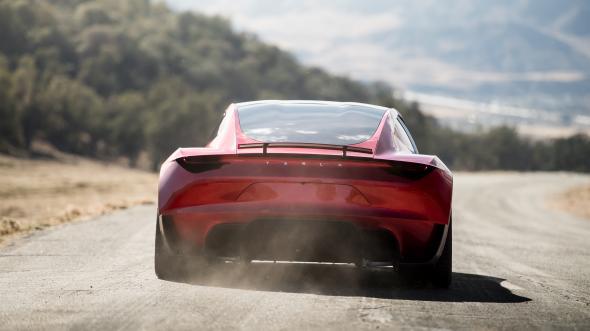Gas-powered vs. Electric Cars: Which Is Faster? [View all]
You're at the red light and the guy next to you revs his engine. You laugh to yourself, though, because he clearly doesn't notice you're driving a Tesla Model S (or he thinks an electric vehicle [EV] is a handicap). The light turns green, you put the pedal the floor and leave him in the dust. Bye, Felicia!
The point of the story is to say that if you want to go from zero to 60 mph (zero to 96.5 kph) as fast as possible, an electric car is the way to go. Surprised? So was the guy at the red light that you smoked in this little made-up story. However, gas-powered cars can still have faster top speeds. So what's the key difference between the two cars? Mostly, the transmission, or lack thereof.
Quick vs. Fast
First, in general racing terminology, "quick" means how long it takes to get from point A to point B, while "fast" means the top speed a vehicle reaches. In drag racing, for example, the "faster" vehicle hits the higher speed over the course of the race, but the quicker vehicle gets to the finish line first.
Electric cars are capable of being quicker than gas-powered cars, but EVs aren't yet capable of going faster. Our little zero to 60 scenario is a good example. Gasoline cars do have a performance advantage when those top speeds are being sustained for longer periods of time.
A 2015 Fortune article featured former Tesla engineer Dustin Grace, who provided a good overview. Electric vehicles generate much more torque than gas vehicles, which is important because torque is what drives the vehicle forward. Furthermore, an electric car's motor eliminates the need for a traditional transmission in many modern designs. The power goes straight to the wheels for instant acceleration, making EVs quicker on the start.
In a gas-powered car, the engine has to route the power first to the transmission and then to the wheels (the components collectively known as the "drivetrain" or "powertrain" ). This process takes longer, wasting crucial zero to 60 potential. Some of the power created by the engine — usually about 15 percent — is also wasted traveling through the drivetrain, known as drivetrain loss.
Read more: https://auto.howstuffworks.com/gas-powered-vs-electric-cars-which-is-faster.htm

In a zero to 60 mph (zero to 96.5 kph) race, a Tesla Roadster like this one will smoke a gas-powered vehicle every time. TESLA
